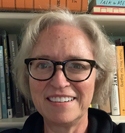 ELLEN ANDREWS
ELLEN ANDREWS
Lately, I’ve been reminded of both the importance and the difficulty in working with state agencies. But collaboration between state agencies and outside stakeholders who share the same goals has never been more important.
Our healthcare system is complex in the extreme, creating unforced errors across the system. Policy shocks now come almost daily from Washington, with massive implications for Connecticut. Without input and collaboration from independent voices, things will go very wrong.
Healthcare costs are out of control. The state Office of Health Strategy reports that Connecticut healthcare costs per person jumped 7.8% in 2023, double the year before and well above inflation. In a system this tangled and opaque, engaging external partners is the only way to avoid unintended consequences.
There’s been some criticism of a conference the state insurance department is co-sponsoring later this month with a group of insurers and financial service companies. (It is a bit expensive.) But it’s a net positive. An opportunity for insurance regulators and stakeholders to hear from national experts on climate change and how to mitigate the risks with innovations and technologies is exactly how learning happens. Everyone is starting with the same information to support shared goals. This is the foundation of good policymaking.
Over the years, I’ve worked with many agencies when we could find common ground. Collaboration gives agencies new options, ideas, resources, and information they couldn’t otherwise access. It builds trust and common understanding. No one expects that we will agree on everything, and we don’t. But respectful disagreement and open lines of communication will get the best outcomes for patients and affordability for all of us.
Some state agencies welcome shared learning. Their records of success reflect that. The Department of Social Services (DSS), for example, is welcoming input and taking all offers of help in addressing the looming federal Medicaid cuts and massive new administrative burdens. They’re coming to dozens of public meetings with legislators, providers, advocates, and HUSKY members. They share what they know, what they’re planning, and they listen. In public Medicaid oversight council meetings, advocates, providers, and other stakeholders pepper them with questions and feedback. This open process has been making Connecticut’s health system stronger for decades.
In fact, the best example of successful health reform in Connecticut was built on collaboration between DSS and outside providers and advocates. Soon after switching our Medicaid program to private managed care organizations (MCOs), it became clear that the model was failing on both quality and cost control. Connecticut started looking for different options with a conference sponsored by our advocacy organization. We heard from national experts, Connecticut stakeholders, and government agencies.
While then-Gov. John G. Rowland wanted to keep the MCOs, DSS supported the conference with staff participation and funding. By answering everyone’s questions and listening to the evidence, we collectively found a vision of how we could move HUSKY to something better. Today HUSKY is a national model for access to quality care, and we’ve saved billions of tax dollars. Open minds, listening respectfully, and exploring evidence-based options always lead to better policy.
To be clear, collaboration does not mean that agencies agree with every position of the groups they work with. In Connecticut, Democratic and Republican legislators often work together on shared issues. No one assumes that, for instance, Democratic and Republican legislators who co-sponsor a bill agree on everything else. Agencies have a duty to work with the public, nonprofits, advocates, and even industries.
I once served on the FDA’s antibiotic advisory committee, back when evidence and expertise guided the process. In addition to experts, clinicians, and advocates, committee meetings always included a drug-company representative. They were nonvoting members and were not involved with the drug being considered. But their input was invaluable in understanding the context. We avoided mistakes by listening to their input.
Right now, collaboration is more important than ever. Connecticut could see 150,000 state residents lose coverage as healthcare costs accelerate, deep Medicaid cuts hit, and insurance subsidies lapse.This will impact the people directly affected with medical debt and poorer health. But it will also affect hospitals and providers that will not be paid for their services. Less profitable services, such as birthing centers and behavioral health, could be forced to shut down. People will lose their jobs and those services will be gone.
The only way to meet these challenges and preserve our progress is to get everyone on the same page. Failure will be very costly for the uninsured, Medicaid members, and for taxpayers. We can’t afford to shut out good ideas or each other; there is too much at stake.

